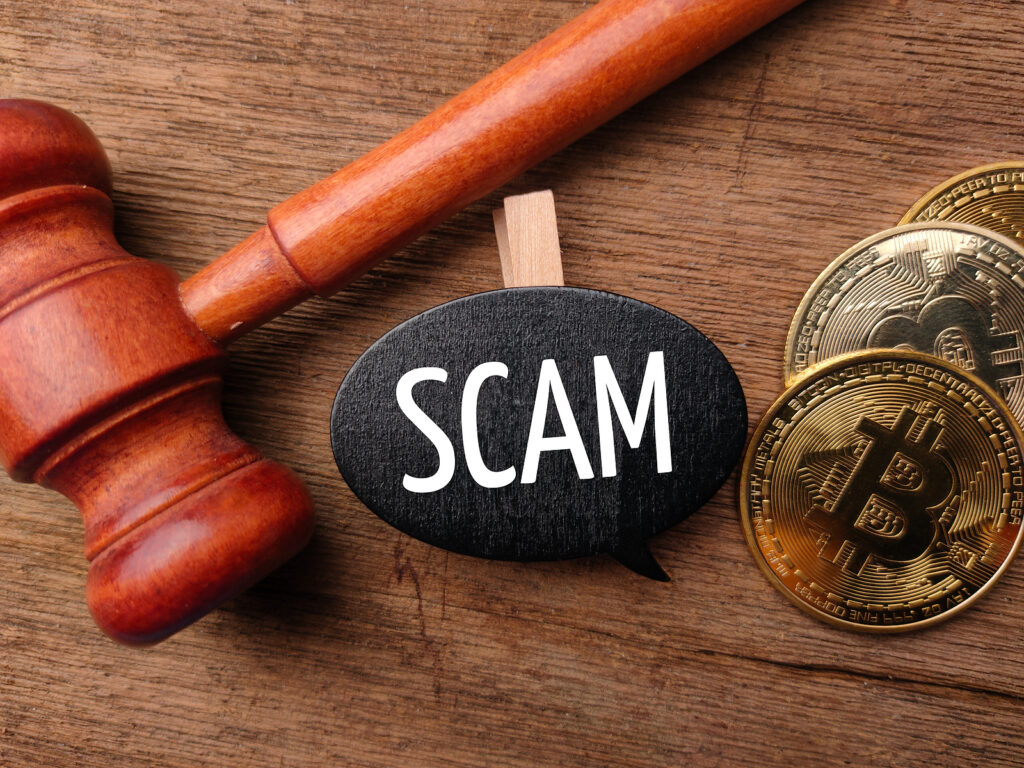-

How Could You Dump a Fortune?
It sounds like a science fiction piece of sorts. A sequence of 64 little numbers holds the key to a potential fortune. Unfortunately, you can’t remember where you left those numbers, and memorizing them just wasn’t practical. Instead, your fortune is now forever gone into the ethers, and there is nothing you can do to recover it.
If you hold bitcoins, this may not be science fiction at all but a scenario that haunts you and makes you slightly – or very – neurotic.
And, in reality, this is how some have lost a fortune in a quick instant. James Howells, a man from Newport, Wales, has spent the last eight years of his life unsuccessfully trying to recover a discarded harddrive from a municipal dump to get hold of those elusive 64-numbers. As of last week, he calculated his fortune, the one that is still lost to him, at approximately $550 million.
In the Beginning
For those on the forefront of bitcoin, there was little security in its use. Many early adopters liked the network concept and used the coins as tokens and anti-establishment ways of making purchases. After all, cryptocurrency was undetectable. You could move financial assets under the radar of the central banking system for many transactions, including illegal ones. The software was free and mining bitcoin was just a bit of fun.
But bitcoin is no longer just a fun little abstraction and the stakes are higher. Cryptocurrencies and the decentralized blockchains that run them are no longer oddities. They have now become potential transformational forces in the financial world and could reshape how industries do business financially. And many of these currencies are now worth a lot more as a result – a LOT more.
Digital assets are evolving so quickly that many in the early phases simply didn’t know what they had…and now don’t remember how to access them. For some, knowing that their bitcoins have now grown exponentially in value only makes the loss worse.
The Intrigue of Bitcoin
Like any good mystery, bitcoin held a lot of intrigue when it was invented in 2008. Just the name of the inventor was an unknown. Satoshi Nakamoto. A person? A group? Who knew? Bitcoin has a fixed supply, “coins” that must be “mined” and can be moved from one owner to another without the knowledge of any administrator or central bank. It does this by a technology called “blockchain” where transactions are recorded.
The decentralized, peer-to-peer, technology-fueled aspect of cryptocurrency has been one of the most transformational things that has happened in the world of finance and global currency in a long time.
And just what younger tech-savvy investors could grab on to. It was like a real-life extension of what many had been doing in online gaming for a while.
How is Bitcoin Valued?
What is the value of bitcoin? It all depends on what the market decides it’s worth on any given day.
While this is common in the marketplace, there is usually something tied to the value of an investment or currency. But with bitcoin, its value is its price. Period. There is no regulation (yet), and nothing tied to its value other than supply, demand, and what someone else is willing to pay. Which has been one of the main reasons for its volatility. While it can seem very rogue, it can also be very perilous for those who are willing to invest hard-earned capital.
How Are Bitcoins Protected?
Unfortunately, like any other form of wealth, bitcoins and other cryptocurrency can attract thieves. For those who own bitcoin, the 64-number private key means that nobody knows how much you have or can manipulate it or have access to it. Ever. Unless, of course, someone steals it. Or if you lose access to your key or the place you stored it is hacked or lost. Because, without that sequence of numbers, your bitcoins belong to the cryptocurrency universe. No record. No traceability. Gone.
Data out of Chainalysis suggests that approximately a fifth of all coins mined to date – between 2.78 and 3.79 million – have been lost, never to be retrieved by the owner. Regarding lost bitcoins, Nakamoto called them a “donation to everyone” since the more coins taken out of circulation, the more valuable the remaining ones became.
In the meantime, experts and amateur techies alike have tried to determine who or what Satoshi Nakamoto is. Although the enigma itself may have been part of the appeal, things got real this month.
Has the Shroud Has Been Lifted on the Mysterious Nakamoto?
Earlier this month, an Australian computer engineer by the name of Craig Wright prevailed in a civil court case in Florida that found that he did not owe half of 1.1 million bitcoins to his former business partner’s family. Why does anyone care? Because Wright claims he is Satoshi Nakamoto. His former business partner, David Kleiman, passed away in 2013 after the two “co-created” bitcoin, according to court documents. Kleinman’s family claimed that his estate was entitled to half the coins.
While the court found that Wright did owe Kleinman’s family $100 million in intellectual property rights but not the share of bitcoins they were asking for, who owns all those remaining bitcoins is still not exactly clear. Wright, aka Nakamoto, must still eventually prove who he is and that he controls some of the original bitcoins. How does he do this? Through that sequence of 64-numbers, the same as any other bitcoin owner. While the court could have unmasked Wright as Nakamoto, it merely ruled in his favor, keeping the mystery intact.
Cryptocurrency is Not a Game
Although in many ways cryptocurrency feels like a cross between Wall Street and Gamestop, real investors and users governed by real laws are still in the crosshairs. Regulations may soon be closing in and serious tax laws still exist about reporting income. It is critical for those who invest and use cryptocurrency to understand their responsibilities and legal exposure.
Contact us to discuss the potential consequences of your investments and how you can keep on the right side of the law.



